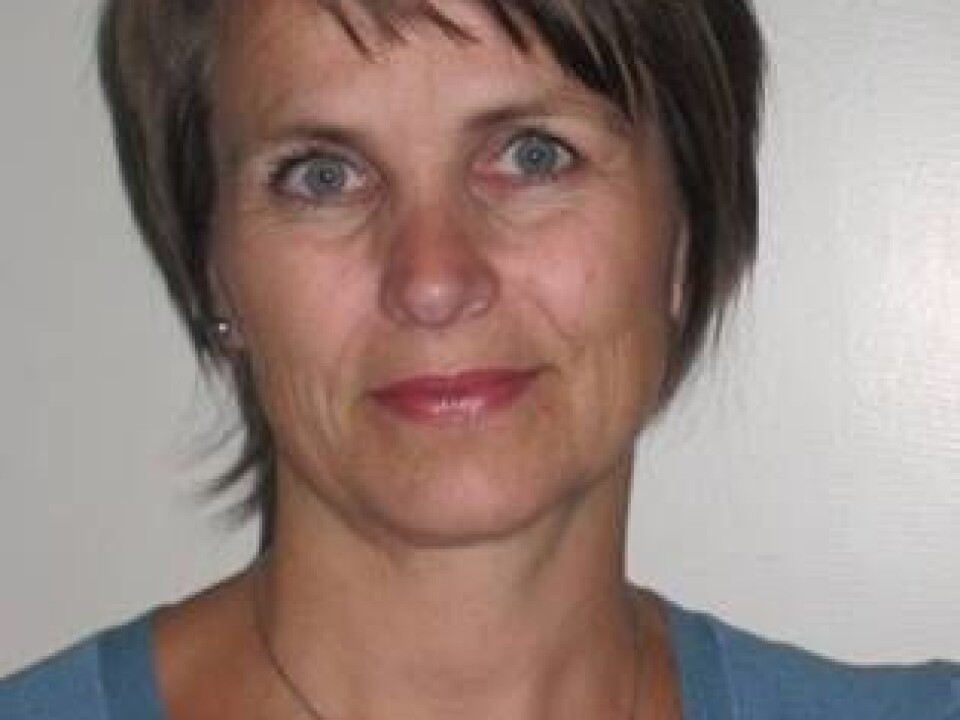
For Norwegian drug addicts, pregnancy might lead to incarceration
A unique law gives social workers in Norway the right to lock up pregnant drug addicts to protect the health of unborn children. A new study looks at how the pregnant users react to being incarcerated.
Denne artikkelen er over ti år gammel og kan inneholde utdatert informasjon.
'Siri' was enrolled in an opioid-assisted drug rehabilitation programme in Norway when she discovered that she was sixth months pregnant. She informed the staff immediately, and within 24 hours she was – voluntarily – on her way to a closed ward.
She felt that firm limits were needed.
After arrival she was shocked to find that doors and windows were locked, surveillance was extensive, and that a withdrawal of her consent to be there voluntarily would resort in an official, forced incarceration.
By Norwegian law, her drug habit was deemed a risk to her unborn child.

In a study published earlier this year, researchers Kerstin Söderström and John-Arne Skolbekken looked at the experience of 'Siri' and another woman, 'Anna', both of whom experienced incarceration due to their mixed situation of fighting a drug habit while also being pregnant.
The study is delving into unknown territory as no other country has a similar law, and no-one has researched how the lawful incapacitation is experienced by the troubled addicts.
Adverse effects, from mother to child
The notion behind the law is that an unborn child has some legal rights and that the social welfare system should protect it from the harm of their drug-using mothers.
Several studies have shown that substance use during pregnancy will trickle down to the child or foetus, and that this can have severe consequences for its health and development.
A pregnant woman’s drug use can result in complications such as preterm delivery, birth defects, neurological problems and spontaneous abortions.
Behind bars in an institution, an unborn child is safer from such harms as their mother is barred from access to drugs. But, ironically and importantly, such incapacitation of a mother might end up killing the foetus.
Abortion may be the only way out
Although pregnant drug addicts are not criminal per definition, they can lose their right to personal freedom and stay in the hands of the ward staff until they give birth, or, until they decide to get an abortion.
“The idea is that in case the child is born, it should get the best possible start, considering the situation,” says Söderström.
“But nonetheless, the somewhat patriarchal state hasn’t overruled the abortion rights of these women.”
Abortion has been legal in Norway since 1964, and today women can choose to abort for any reason during the first 12 weeks of pregnancy. There are about 245 abortions per 1000 live births in Norway, while the EU average is about 230.
'Anna', one of the two participants who were interviewed by Söderström, said she was sentenced to a mandatory incarceration and responded to the news by requesting a medical consultation to have an abortion.
But before the court’s decision, she was determined to keep her child.
“I could not understand why they were doing this to me,” she said.
“'What have I done, why are they here?' I thought. I have always been on the right side of the law. In that situation I felt like a hardcore criminal. And of course, people will think that I am a criminal when the police show up on my doorsteps.”
Anna repeatedly changed her mind about whether to proceed with the abortion, and life in the locked institution was difficult.
“I hope I'll never experience anything like this again,” she told Söderström.
“I’ve been living with so much coercion. I grew up with it; during my marriage my life was controlled by my husband. I’ve been controlled by others. I hate coercion. Freedom is dead serious to me.”
Anna eventually decided to keep her child. But her experience means that increased abortion rates might be an unintended negative effect of the law.
The case-based methodology of Söderström’s study is commonly used to illustrate ethical dilemmas. The experience of Siri and Anna cannot be generalised to all other cases out there, but “what one person experience can be a potential ethical challenge. It is treated as potentially relevant to others too,” says Söderström.
Positive effects
Despite ethical concerns, an enforced 'cold turkey' treatment of drug addicts will in many cases have good results.
“What I hear again and again is that women experience life in the locked wards as very tough and hard to bear, and one even said it was worse than prison. But they are thankful in the end.”
The researcher explains that a drug addiction can be overwhelming, both psychologically and physiologically. Many addicts say they need firm limits to win it over, and sometimes locked doors and windows are necessary.
“One woman told me she wished she was locked up earlier. That would’ve saved her from the guilt of possibly hurting her child.”
Treat both parent and child
Söderström says she is inclined to be happy about the law’s effectiveness, but warns against how some health and social workers might end up caring more about the unborn child than its mother.
“The instinct to protect a child is important,” she says. “But we need to handle it without demeaning the parent.”
The researcher says the pregnancy period is a psychological window of opportunity to help an addict come clean and continue life as a good parent for the next generation.
“Adults find lots of motivation to change their ways in this phase and we should provide whatever help is needed,” she says. “Generous investments early in life will pay off in safer childhoods and future health and productivity, in both parent and child.”
































